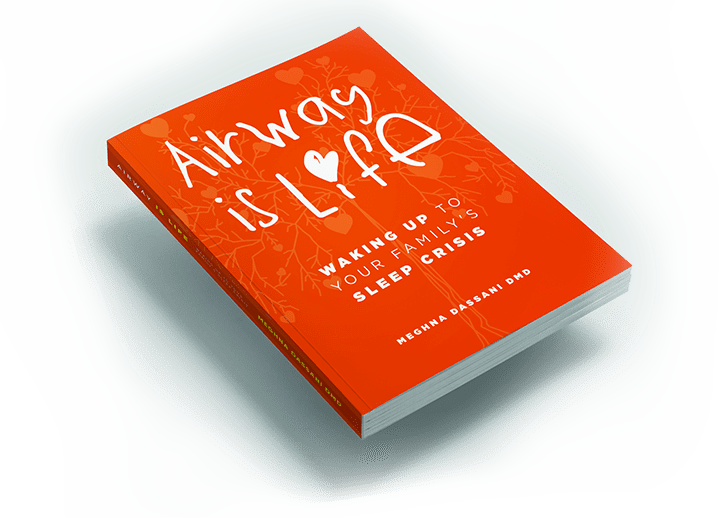Should you give children sleeping aids, like sleeping pills?
It’s becoming common practice to prescribe even young children sleeping aids and sleeping pills. The average age of children who receive sleep-aid prescriptions is decreasing as complaints of sleep issues, like pediatric insomnia, are increasing.
But studies show when kids use sleeping aids, they experience a 50% weakening, or unwiring, of the brain-cell connections originally formed during learning. While sleeping aids help children fall asleep faster, the trade-off is kids wake up with fewer memories from the day before.
So what should parents do?
Getting a good night’s sleep is essential for children’s health and well-being. Sleep deprivation can lead to a range of problems, including…
- Poor cognitive function, which can affect children’s ability to concentrate and solve problems
- Emotional disturbances, such as mood swings, irritability, and aggression
- Physical health problems, including a weakened immune system, obesity, and cardiovascular issues
Consequently, many parents grapple with the question of whether to give their children sleeping aids to improve their sleep.
Understanding the need for sleep
Sleep plays a vital role in children’s…
- Physical growth
- Brain development
- Memory consolidation
- Emotional well-being
Children, especially infants and toddlers, need more hours of sleep compared to adults to support their growth and development. However, many factors can disrupt children’s sleep patterns, including…
- Anxiety
- Stress
- Environmental factors
- Underlying medical conditions, such as sleep apnea
The role of sleeping aids
Sleeping aids, including over-the-counter (OTC) medications and prescription sleeping pills, are designed to help people fall asleep or stay asleep. These medications generally work by altering brain activity, inducing drowsiness, or promoting relaxation. However, the use of sleeping aids in children is a matter of concern for several reasons.
Lack of research
Limited research exists on the long-term effects of sleeping aids specifically designed for children. Most sleep medications are tested primarily on adults and are not extensively studied in pediatric populations. As a result, there is a lack of evidence regarding the safety, effectiveness, and appropriate dosages for children.
Potential side effects
Sleeping aids can cause a range of side effects, even in adults. These include…
- Dizziness
- Daytime drowsiness
- Headaches
- Increased risk of dependence or addiction
The potential risks and side effects may be even more pronounced in children due to their developing physiology.
Masking underlying issues
Sleep disturbances in children are often symptomatic of underlying medical or psychological conditions, such as…
- Sleep apnea
- Anxiety disorders
- Attention deficit hyperactivity disorder (ADHD)
Giving sleeping aids to children without addressing the root cause may only mask the symptoms and delay proper diagnosis and treatment.
Alternatives to sleeping aids
Instead of relying on sleeping aids, parents can try alternative strategies to help their children establish healthy sleep patterns:
Consistent sleep routine
Establishing a regular bedtime routine helps signal to children that it’s time to wind down and prepare for sleep. This routine can include activities like…
- Taking a warm bath
- Reading a book
- Listening to calming music.
Creating a sleep-friendly environment
Ensure that children’s sleep environments are conducive to restful sleep. This involves…
- Maintaining a cool, dark, and quiet room
- Using comfortable bedding
- Removing electronic devices that emit blue light
Promoting relaxation techniques
Just before bedtime, parents can encourage their children to perform relaxation techniques, such as…
- Deep breathing exercises
- Meditation
- Gentle stretching
These activities can help children unwind before bedtime and ease any anxiety or tension they may be feeling.
Addressing underlying issues
If sleep disturbances persist, parents should consult with a healthcare professional to investigate and address any underlying medical or psychological conditions that could affect their children’s sleep.
When it comes to the use of sleeping aids in children, caution is warranted. It’s natural for parents to want to reduce their children’s sleep difficulties. But the potential risks and lack of research make it beneficial to explore alternative strategies before considering medication.
Dr. Meghna Dassani has practiced dentistry for over two decades and is passionate about the role dentists play in whole-body health. You can learn more at her website: MeghnaDassani.com.
Healthy Sleep Revolution Podcast
Snoring? Tired all day? Trouble focusing?
So many think these symptoms are common in kids and adults when tired. Join us as we debunk some of these common myths and put the spotlight on Sleep Apnea. Discover what constitutes healthy sleep and how we can help ourselves and our kids get the best sleep ever.


